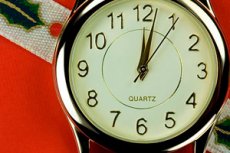Nye publikasjoner
Studie viser at forstyrret søvn øker risikoen for selvmord og drap
Sist anmeldt: 02.07.2025

Alt iLive-innhold blir gjennomgått med medisin eller faktisk kontrollert for å sikre så mye faktuell nøyaktighet som mulig.
Vi har strenge retningslinjer for innkjøp og kun kobling til anerkjente medieområder, akademiske forskningsinstitusjoner og, når det er mulig, medisinsk peer-evaluerte studier. Merk at tallene i parenteser ([1], [2], etc.) er klikkbare koblinger til disse studiene.
Hvis du føler at noe av innholdet vårt er unøyaktig, utdatert eller ellers tvilsomt, velg det og trykk Ctrl + Enter.

En analyse utført av forskere ved psykiatrisk avdeling ved University of Arizona College of Medicine i Tucson fant at risikoen for død som følge av selvmord og drap topper seg om natten, med det å være oppe hele natten, alder, alkoholbruk og konflikt i relasjoner som spesielt vanlige medvirkende faktorer.
Nesten 19 % av selvmord og 36 % av drap skjer om natten. Selvmord og drap har lite til felles, men deres svært konsistente nattlige risikomønstre tyder på et fellestrekk: nattlig våkenhet.
«Forstyrret søvn kan akutt svekke rasjonell tenkning, noe som kan føre til impulsiv atferd hos sårbare individer», sa studiens førsteforfatter Andrew Tubbs, MD, en forsker i søvn- og helseprogrammet ved University of Arizona College of Medicine i Tucson, Department of Psychiatry.
«Vår analyse av 15 år med amerikanske data fant at det er en femdobbel risiko for selvmord og en åttedobbel risiko for drap mellom klokken 02.00 og 03.00 når man tar hensyn til antall personer som er våkne og i stand til å begå selvmord eller drap.»
Artikkelen «Suicide and Homicide Risk Peaks at Night: Results from the National Violent Death Reporting System, 35 States, 2003–2017» ble publisert i Journal of Clinical Psychiatry.
«Det faktum at disse nattlige risikomønstrene gjelder både selvmord og drap er slående», sa seniorforfatter av studien Michael Grander, PhD, førsteamanuensis i psykiatri, direktør for Behavioral Sleep Medicine Clinic og medlem av BIO5 Institute.
«I vår gjennomgang av mer enn 78 000 selvmord og 50 000 drap, kan vi finne en viss innsikt i hvorfor nattlig våkenhet – det vi kaller «sinn etter midnatt» – innebærer en klar risiko for dysregulert atferd.»
Forfatternes hypotese om «sinnet etter midnatt» antyder at nattlig våkenhet svekker hjernens komplekse beslutningsfunksjoner og reduserer rasjonell tenkning på et tidspunkt hvor negativt humør er på sitt høyeste, positivt humør er på sitt laveste, og risiko/belønningsprosesseringen er forvrengt.
Resultatene støttet denne hypotesen. Risikoen om natten var høyere blant ungdommer og unge voksne, personer som var beruset og de som opplevde vedvarende konflikt med en partner, men ikke blant de som brukte cannabis eller var deprimerte.
Personer i alderen 15 til 24 år opplevde en tredobling i selvmordsrisikoen om natten, mens den uventede selvmordsrisikoen ble sett blant eldre klokken 06.00. Risikoen for drap varierte ikke etter alder, selv om unge mennesker utgjorde mer enn halvparten av alle drapsofre.
«Få studier har sett på tidstrender i voldelig kriminalitet», sa Tubbs. «Fremtidig forskning kan avklare hva som egentlig skjer i hjernen som disponerer folk for slike risikoer, og om evidensbaserte strategier for å forbedre søvn og redusere nattlig våkenhet kan bidra til å redusere risikoen og forhindre disse tragiske utfallene.»
